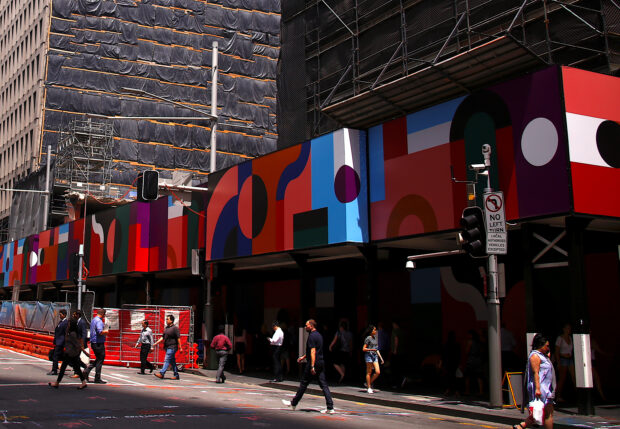
Buildings being renovated and under construction can be seen near shoppers as they walk along a street in the central business district (CBD) of Sydney in Australia, Feb 13, 2018. REUTERS/David Gray/File photo
SYDNEY – Australian business conditions continued to soften in December as manufacturing and construction lost ground, a survey showed on Tuesday, while price pressures eased markedly in a promising sign for slower inflation.
The survey from National Australia Bank (NAB) showed its index of business conditions dipped 2 points to +7 in December, though that was still just above its long run average.
Its measure of business confidence rebounded 7 points to -1, led by a pick up in the mining and retail sectors.
Importantly, measures of labor and production costs retreated after a bounce in November. Quarterly growth in retail prices dropped sharply to 0.6 percent, the lowest since late 2020, from 1.8 percent the previous month.
READ: Australia’s central bank holds rates steady until at least February
“The sales periods around Black Friday and Christmas likely have played a role here but this is nonetheless an encouraging sign that inflation may have eased at the end of the quarter,” said NAB’s chief economist Alan Oster.
That should be a comfort for the Reserve Bank of Australia (RBA), which has lifted interest rates to a 12-year high of 4.35 percent to combat inflation.
READ: Australia’s economy slows to a crawl, consumer spending surprisingly weak
Consumer price inflation ran at 5.4 percent in the September quarter, though a partial measure of monthly CPI had showed a fall to 4.3 percent in November.
READ: Australia inflation slowed to 4.3% in Nov, core down sharply
The NAB survey’s measure of business sales eased 3 points to a still solid +10 in December, while profitability held at +6 and employment dipped a point to +7. Capacity utilization softened to 82.7 percent, from 83.6 percent.


